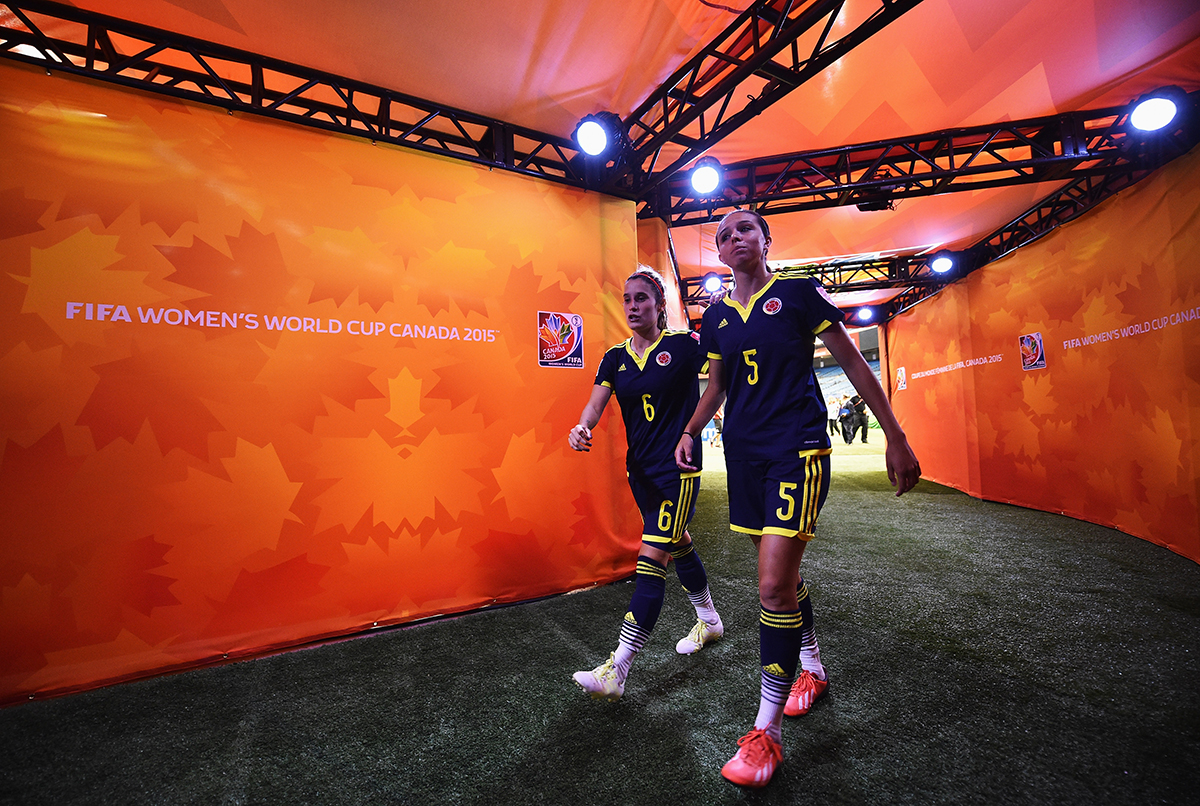
A week before the start of the 2015 FIFA Women’s World Cup, Lina Granados figured she’d be watching the games like most everybody else around the globe—comfortably parked in front of a TV. The standout Vanderbilt soccer defender had come tantalizingly close to representing her home country of Colombia in the tournament, making it as far as the 35-player provisional roster, yet she wasn’t among the final 23 picked.
But then on June 1, just five days before the World Cup was set to begin in Canada, the unthinkable happened: Her Colombian teammate Melissa Ortiz ruptured her Achilles tendon, opening up a spot on the roster.
“The next day I saw a tweet from FIFA that I had been named Melissa’s replacement,” says Granados, who at the time was helping her parents move from Northern Virginia to Houston. “It was unbelievable. I freaked out. When my parents heard me, they thought somebody had died.”
Granados had mixed emotions when she eventually spoke with Ortiz on the phone—“It was hard to figure out how I was supposed to feel,” she admits—but her teammate told her to seize the moment and help their beloved Colombia make an impact on the world stage.
Granados and the rest of the team did not disappoint.
In just their second-ever appearance in a World Cup, the Cafeteras—or “Coffee Makers,” as they’re affectionately known—opened the tournament with a respectable 1–1 draw against Mexico. They then proceeded to shock everyone with a 2–0 upset of France, which had been ranked No. 3 in the world. The victory was the team’s first ever in a World Cup.
“After beating France, we were sky high. Nobody could bring us down,” says Granados. “That’s my favorite memory of the tournament.”
Colombia didn’t fare as well in its next two games, losing 2–1 to England and then 2–0 to the eventual World Cup-champion U.S. team, but Granados says she and her teammates returned from Canada with their heads held high.
“The most important thing we got out of the World Cup was respect,” she says. “Nobody can question us anymore.”
Although Granados spent most of her childhood in the U.S., she is acutely aware of the discrimination female soccer players face in her home country. Many Colombian girls who want to play, she says, don’t get the necessary support from their parents because soccer is still considered a man’s sport there. But Granados hopes her team’s recent success will change some minds.
“We weren’t just playing for ourselves when we were out there,” she says. “We were playing for equality.”
After a stint this summer with the Washington Spirit reserves of the National Women’s Soccer League, Granados is now back at Vanderbilt for her junior year. For the time being, her sights are set on playing for the Commodores and continuing her studies in engineering science. She says someday she may join a professional team, perhaps in Europe, but only after graduation.
“Soccer is not forever. I understand that,” she says. “But an engineering degree from Vanderbilt—that’s something I can always rely on.”
—SETH ROBERTSON